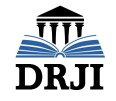“Which violence is serious, which victim is a victim?” Truth Commissions and their relationship to the Human rights paradigm
DOI:
https://doi.org/10.5433/1679-0383.2016v37n2p235Keywords:
Human rights, Truth Commission, Transitional justice.Abstract
The article takes as a starting point that the human rights language is built upon the intersection of at least three distinct modes of normative justification: the moral, the political and the legal ones. In face of such division, the article asks: how does the human right language contribute for the creation and assurance of rights to truth and memory? Two arguments will be developed. First, the state tends to reproduce the human rights’ global paradigm in its attempts to create transitional justice mechanism. The Truth Commissions are a prime example of such normative translation in local contexts. Second, the article argues that Truth Commissions shows at least two major constraints regarding its normative frame: on one hand, the definition of what human rights violations shall be recognized as such, on the other, the crucial decision of whose narratives shall contribute to the transitional process itself.Downloads
Downloads
Published
How to Cite
Issue
Section
License
Semina: Ciências Sociais e Humanas adopts the CC-BY-NC license for its publications, the copyright being held by the author, in cases of republication we recommend that authors indicate first publication in this journal.
This license allows you to copy and redistribute the material in any medium or format, remix, transform and develop the material, as long as it is not for commercial purposes. And due credit must be given to the creator.
The opinions expressed by the authors of the articles are their sole responsibility.
The magazine reserves the right to make normative, orthographic and grammatical changes to the originals in order to maintain the cultured standard of the language and the credibility of the vehicle. However, it will respect the writing style of the authors. Changes, corrections or suggestions of a conceptual nature will be sent to the authors when necessary.

















